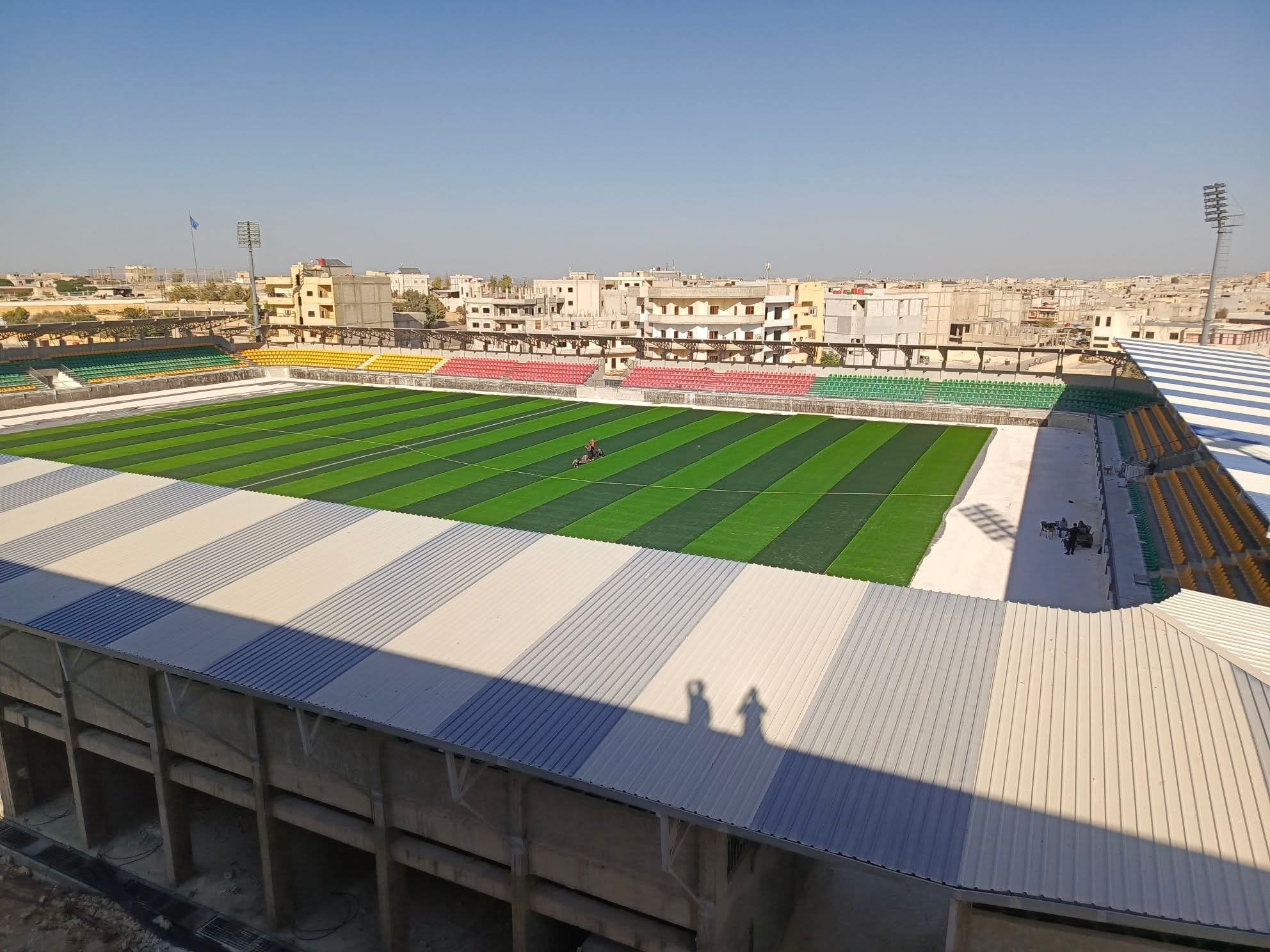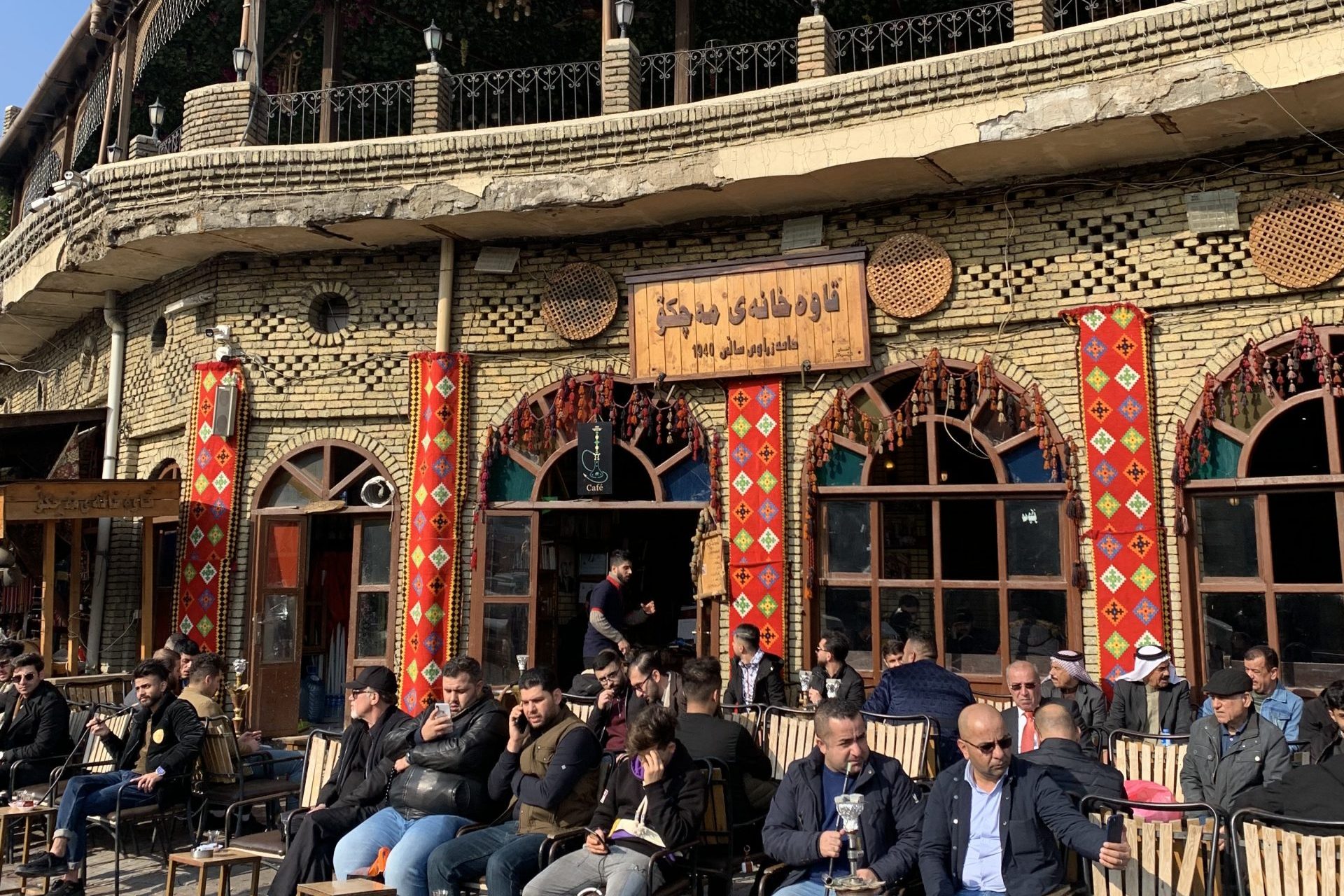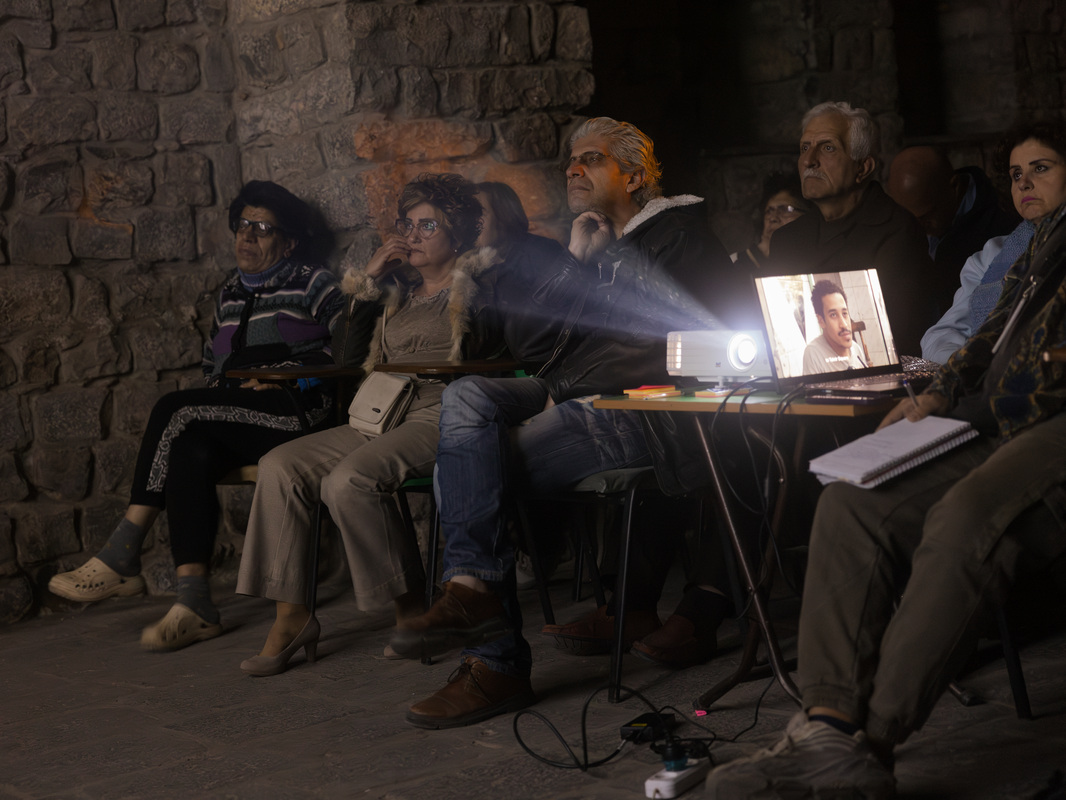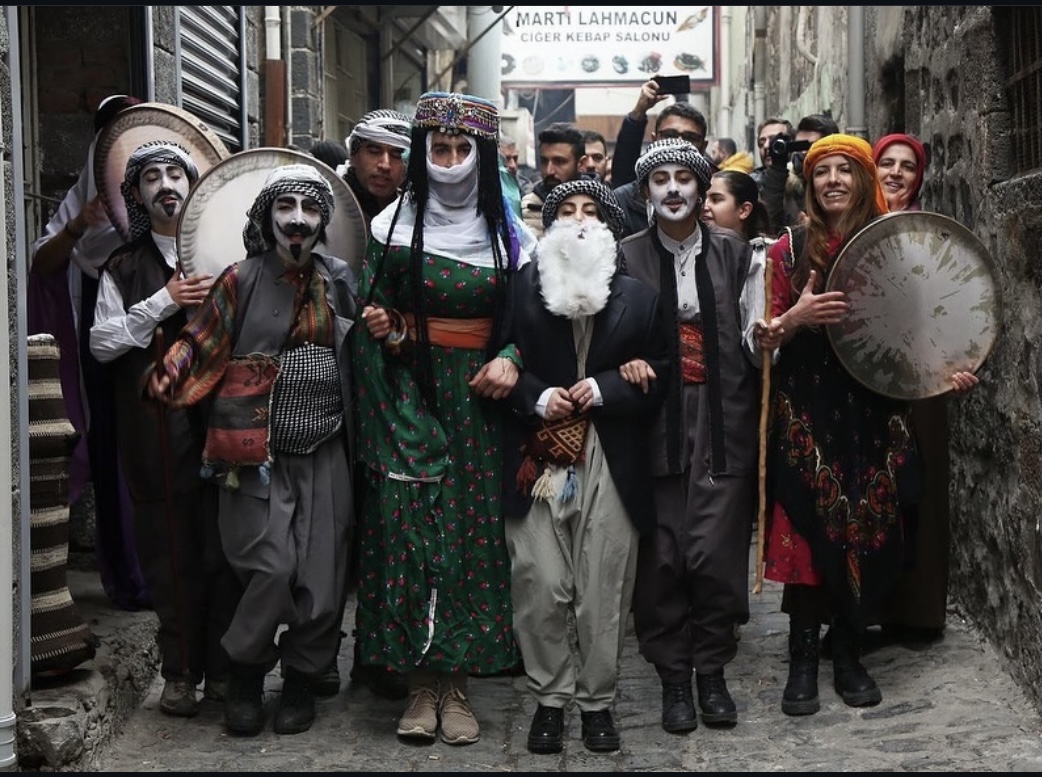From Sand to Stadium: How Kobani’s Youth Found a Place to Play
Photo Credits: Youth and Sport Board in the Euphrates Region
Before 2012, the Assad regime had systematically marginalized Kobani for close to five decades, as it had most other Kurdish cities in Syria.. Especially under the rule of Bashar al-Assad, the Kurdish regions were characterized by infrastructural negligence in all spheres of life, including sport.
Despite football being the most popular sport among men and boys from the region, there were no outdoor facilities or stadiums where it could be played. Streets and empty, sand-filled fields served as improvised football fields. Because of this, the game would be interrupted by passing traffic or by neighbors who would not tolerate the noise and force the children to stop playing.
“We used to play in Golê [a dried-up lake], a sand stadium. We had a lot of difficulties. When it rained, the stadium turned into mud, and we had to leave it, and the league would stop. We had to wait until the stadium was dry,” says Shiyar Welo, a football player in the Kobani tournament.

Another option was to play in the schoolyard at the end of the school day, though this came with its own problems. Schools were places for ‘proper’ nationalist indoctrination, not a place for joyful hobbies. Here, too, the games would get suspended when the janitor would suddenly appear and chase the children, threatening to punish them. In some cases, if the janitor couldn’t handle the situation, the police would intervene to stop the “intruders”. Women were moreover completely excluded from sports.
Since 2012, with the Rojava revolution, the situation regarding sport has undergone gradual changes. The Democratic Autonomous Administration of North and East Syria (DAANES), also known as Rojava, officially inaugurated the first football stadium in Kobani last month. The stadium was named the Martyr Bewar Agir Stadium in honor of a martyr who encouraged, organized, and empowered youth through sport.
“This project was proposed by the Youth and Sport Board for athletes in the Euphrates region and, more generally, for those in northern and eastern Syria, in order to hold tournaments there,” Avashin Misto, co-chair of the Youth and Sport Board in the Euphrates Region, told the Amargi
Although construction of the Stadium began in 2019, ongoing wars and attacks on North and East Syria, along with a lack of specialized engineers, delayed its completion. “It was extremely difficult to import resources and materials for construction due to embargoes and border closures, and we had to stop construction. The stadium was even attacked by the Turkish state during this time,” added Misto.
The stadium was initially expected to be completed last year. After the fall of the Assad regime, the attacks by Turkey and the armed groups it backed, the so-called National Syrian Army, intensified. After taking Manbij, they began moving towards Kobani to occupy it, but faced fierce resistance from the SDF and the local populace. This caused a further significant delay to the project’s completion.
Sport goes beyond physical exercise; it is a form of social organization that gives crucial meaning to the vitality of young people. It channels impulses, passion, and energy into constructive outlets and helps prevent self-destructive tendencies among youth. In this sense, explained Misto,
“The aim of constructing the stadium was to strengthen sport, to organize our youth, and to steer the youth away from drugs. Through sports academies, we can organize our youth better, from children to young men and women.”
The stadium was built to international standards. It boasts changing rooms for players, several smaller academy halls as annexes, for alternative activities such as chess, table tennis, computer training, painting, and music, as well as a cafeteria.
“We built these academies to ensure every youngster in the region can practice their hobbies, culture, and sport, and find their place within them,” Misto clarified.
The stadium was financed by the Youth and Sports Board, with a share of the budget provided by the DAANES for annual projects. The stadium events included football, marathons, and sprint races.
Since its inception, the Administration has empowered women and increased their participation in various spheres of life, including sport. According to Misto, women participate in all forms of sport, whether individually or as a group. There are female football, basketball, and volleyball teams. Women are also active in running marathons, chess, and bicycling. Young girls also participate in these activities, and moreover, several tournaments are held exclusively for women.
“This stadium, for us, is a great joy. Before our halls were small. With the stadium, we can play well and train more, and this will help us to develop our skills more,” Amira Mislum, a female football player with the Kobani club who started playing at 11, told the Amargi. Since the stadium’s establishment, many people have encouraged their children to take up sport, she added.
The stadium’s inauguration has brought great enthusiasm and happiness to the people of Kobani. The first three days of the inauguration started with concerts, dancing, and music. Although the stadium can accommodate 5,000 people, 8,000 attended the historic event in Kobani.
Cihad Hammy
Cihad Hammy studies English and American Studies (Master’s) at the University of Hamburg. He is a researcher and the co-editor of Rojava in Focus: Critical Dialogues.




